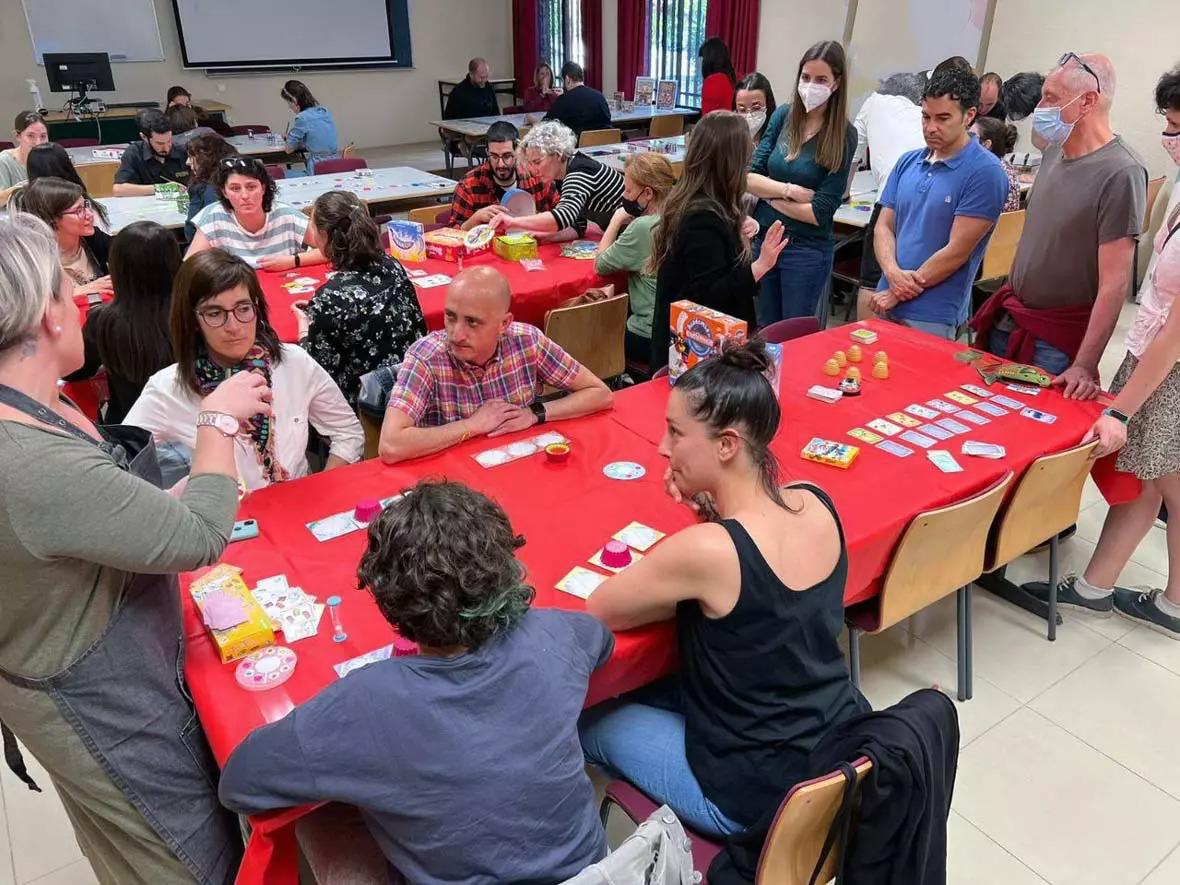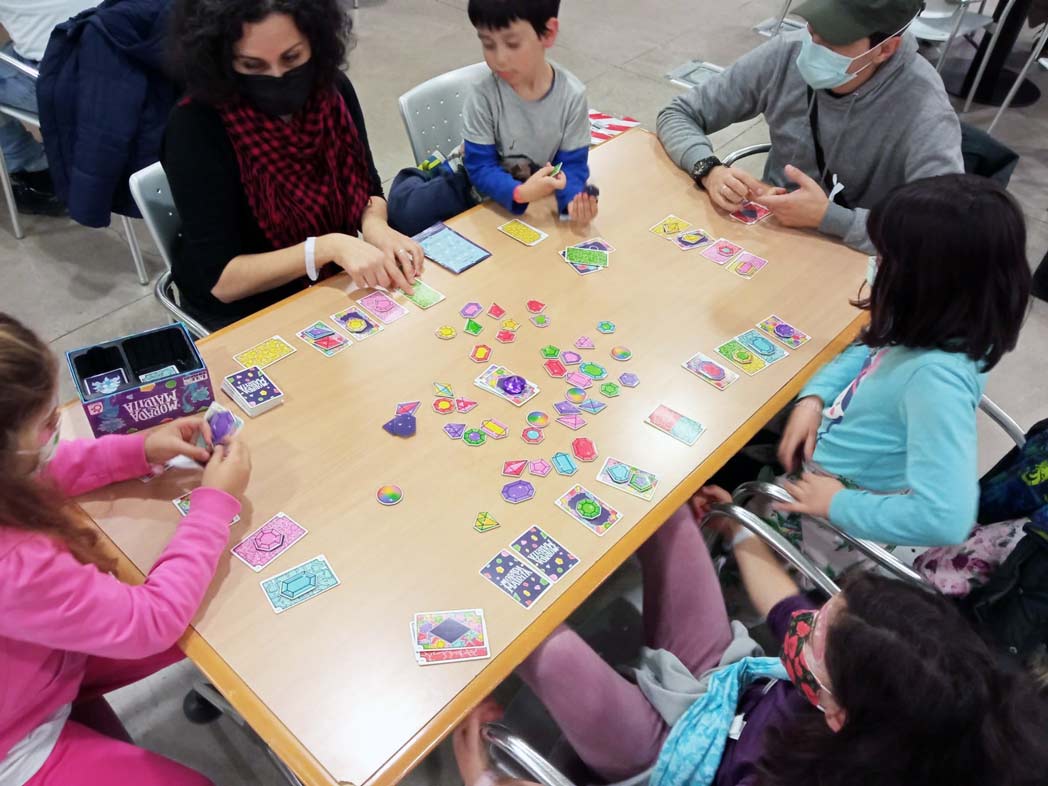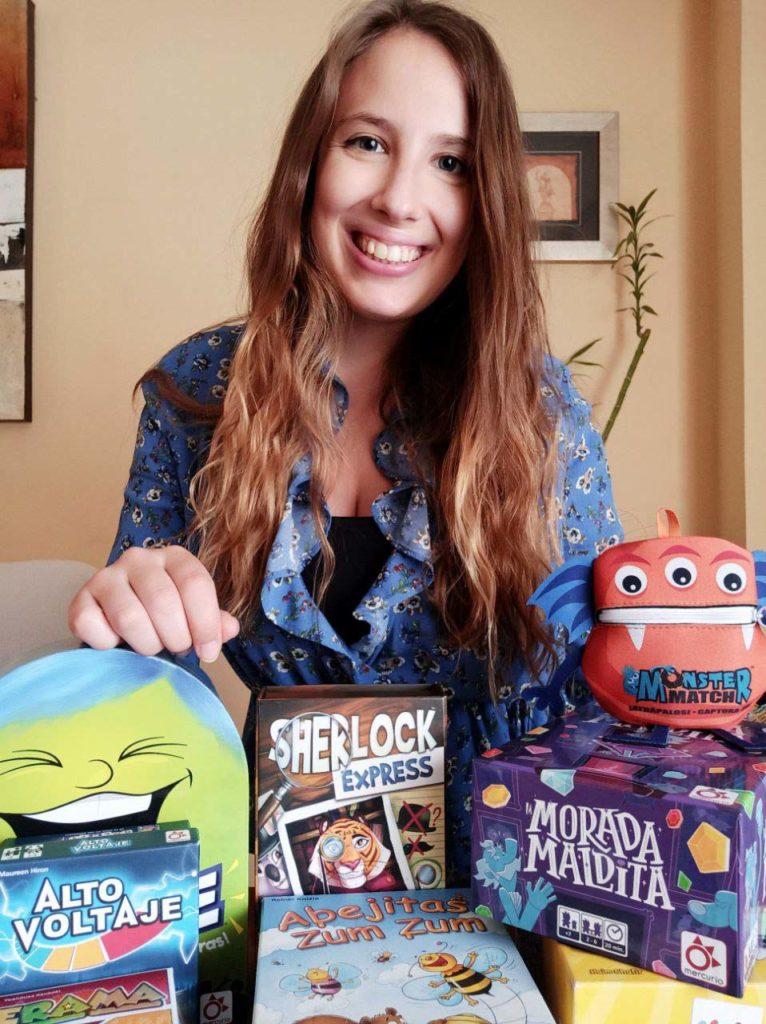
During the Covid-19 pandemic, board games once again filled many hours with family and friends. Before homes were filled with screens, board games took centre stage when it came to group leisure. Moreover, playing has always been a human need, fundamental during the learning process to learn how to solve problems. But what scientific basis lies behind the benefits of board games?
In order to understand the scientific evidence, and the impact that board games have on cognitive processes in childhood, we talked to the team of the industrial doctorate project "Conectar Jugando". The company Mercurio Distribuciones, Spain's leading publisher for family and children's games, launched this strategic research project in collaboration with the Neuropsychology, Genes and Environment Research Group (NeuroPGA) of the University of Lleida. The bridge between business and university is Núria Vita-Barrull, the industrial doctoral student who carries out her research within the framework of the industrial doctorate.
Since 2014, the NeuroPGA research group has been investigating the cognitive benefits of playing modern board games, a work supported by research carried out on children with ADHD and the elderly, published in high-impact scientific journals. This is how they came to propose to Mercurio the possibility of doing an industrial doctorate, and creating the "Connect Playing" program of cognitive training based on modern board games in primary education. This research is generating increasing interest among professionals in the leisure sector, the scientific community and society in general: "since the project began, we have participated in interviews with channels specialized in board games (YouTube, podcast), we have talked with the influencer in games and education María Couso, and we have collaborated in reports on board games in general media such as RTVE en Juegos de sociedad, in El Confidencial in La locura por los juegos de mesa llega hasta Garzón: cómo la pandemia nos hizo 'jugones, and in The Conversation magazine with an article on the benefits of board games that has been very well received by national and international audiences", explains Núria Vita-Barrull.
"The speed at which the board game was introduced in the classroom did not correspond to quality research that gave it a foundation"
Núria Vita-Barrull, industrial doctoral student. Tweet

The project aims to provide scientific evidence that justifies the use of board games in primary school classrooms, providing a rigorous and critical look: "we realized that the speed at which board games were introduced in the classroom did not correspond to quality research that gave it a base", says doctoral student Nuria Vita-Barrull. The work carried out by the team has shown that when teachers use board games in their classrooms, there are obvious benefits in the basic executive functions of students.
But how important are these features? Although the concept may seem very technical, the truth is that during learning and throughout our lives it is essential to know how to adapt to our environment, set goals and achieve them, anticipate situations, control impulses, plan, etc. All this is part of what is called the basic executive functions, and it is important to acquire them from childhood.
Board games, well energized, allow this learning process: "with the industrial doctorate we have seen that, even, applying modern board games in the school environment, both in the general population and in children at risk of social exclusion, helps to develop basic executive functions" as Dr. Jorge Moya from the NeuroPGA group clarifies. Another obvious fact is that board games involve interaction with other people, which could also favor social relationships.
"We hope it changes the point of view on the game, and gives it the importance it has beyond pure fun."
Paolo Alaimo, CEO of the company Mercurio. Tweet

During the development of the project, a key aspect, not investigated until now, has been addressed, providing innovation in this field of research: with what criteria does a teacher choose a board game or not? In order for the choice of board game to meet the educational objectives, the project has tried to provide the maximum possible objectivity. In this sense, the experience of the company Mercurio has been fundamental, since the elaboration of its catalogs is based on an educational vision, trying to have games that allow to work different educational and cognitive abilities. The project, with the help of a committee of experts made up of professionals from different disciplines, has analyzed in depth and with scientific methodology the wide range of games of the company.
Conectar Jugando is a reality thanks to the joining of forces of the company Mercurio, of the association AFIM21 (Atención Familia, Infancia y Mayores) that started the project to use board games in classrooms in Almería and put the company in contact with the NeuroPGA research group in Catalonia. The collaborative research between the university and the company has been one of the key elements for the development of the project: "sharing the experiences and knowledge of each of the agents involved has allowed the research not to remain in the laboratory, but to have a real impact on schools and the world of board games", explains Núria Vita-Barrull.
The reality is that the experience is being introduced in the classrooms, during the 2021-2022 academic year the project has taken board games to 5 schools in Lleida and 4 in Madrid , thus reaching a considerable number of participating students: "the message that not everything goes, it is percolating. We are beginning to see that professionals and colleagues from other universities are interested in learning about the evidence of board games, and are not satisfied with opinions or perceptions subject to bias", says Núria Vita-Barrull.
The project shows that by training cognitive processes (improvement in memory, verbal fluency, understanding a text, performing mathematical calculations, etc.) in the classroom through games, there must be an improvement in the ability of students to remember and update information, slow impulses when necessary or change their thoughts or actions according to the conditions that occur in their day to day. In short, this Industrial Doctorate has demonstrated the effectiveness of the application of board games in formal educational environments: "we hope that this playful methodology, with modern board games, will be increasingly implemented in schools", says Dr. Jorge Moya-Higueras.
As Paolo Alaimo, the CEO of the company Mercurio, concludes: "we hope that it will change the point of view on the game, and that it will be given the importance it has beyond pure fun". The project will allow for more research collaborations in this line in the coming years, thus improving the applications of recreational programs in classrooms.

